This week’s episode of Outdoor Journal Radio was all about bass fishing and opened with an interesting study that shows why bass might be one of the only species in freshwater that can reliably, and ethically, support a tournament industry.
Why Bass Survive Tournaments
Rolling with the Punches:
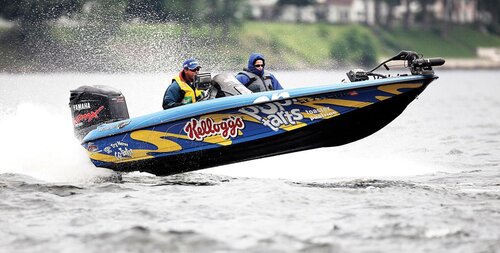
One of the most unique things that make bass so suitable for tournament fishing is their ability to survive long stints in the livewells of boats. This ability was highlighted most notably in a 2005 study out of Queens University.
In this study, using cameras placed in simulated livewells, the researchers were able to show that the bass placed in the well had an innate ability to detect the motion of the water and turn their bodies toward it. While this may seem rather simple, this ability allows the fish to keep themselves away from the walls of the well and avoid damaging blows in even the roughest of conditions.
Furthermore, all of the bass studied also displayed a tendency to keep themselves at the livewell’s midline, the area that receives the least amount of water movement when the boat is in motion. This trait is especially useful in a tournament industry that sees its boats reach top speeds of 70+ mph.
In order to establish if these tendencies were unique to bass, the same team of researchers repeated the study using walleye as the test subject. As the researchers suspected, walleye seemed to lack the ability to orient themselves in the well, often remaining in the position they were placed and keeping their bodies suspended in the upper half of the column. This inability to move with the flow of the water and refusal to sink down to less vulnerable sections of the well resulted in violent collisions with the well’s walls and significant injuries as a result.
Handling the Heat:
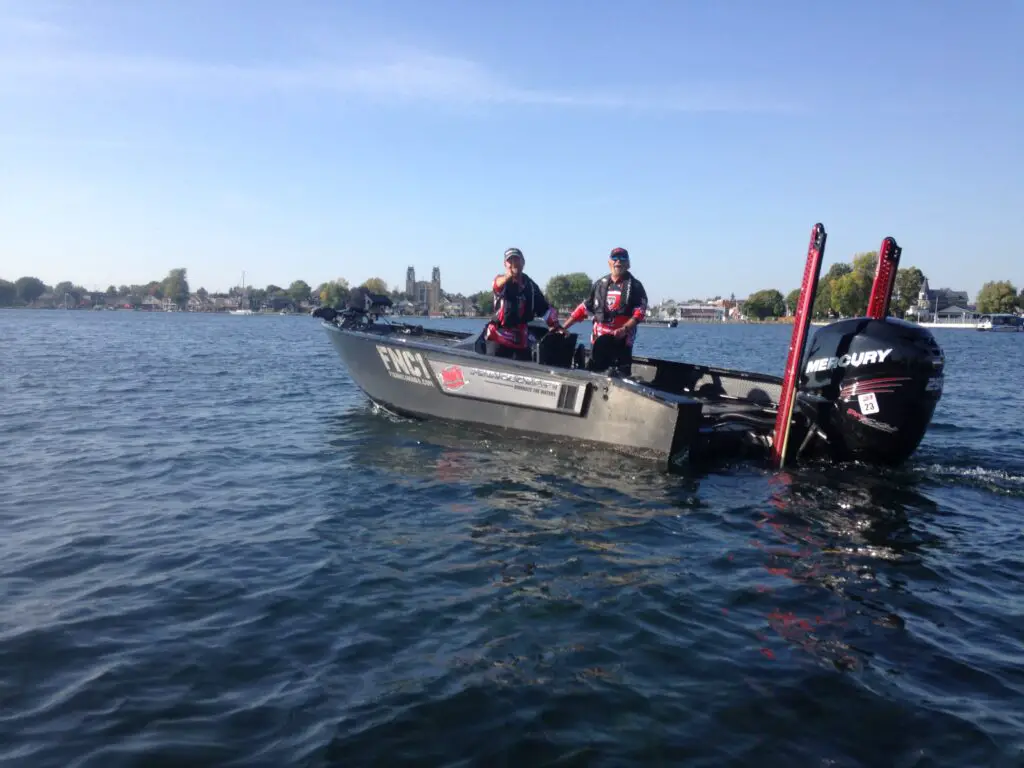
Another trait of bass that makes them well-suited for tournaments is their tolerance of warm water.
Although their preferred water temperature is around 68 degrees, Largemouth Bass can handle temperatures of up to 85 degrees. Similarly, although often thought of as a cold-water species, Smallmouth inherit much of this tolerance as well and can thrive in lakes that reach well into the low 80s. This ability to handle extremely warm temperatures is an essential component to what makes them a viable tournament species in an industry whose largest base lives near the equator and operates primarily during the summer.
Though species such as Crappie and Bluegill do share this ability to thrive in warm water, bass are perhaps the only “gamefish” that possess this trait. Species such as pike and walleye, for example, abandon the shallows by the mid-summer and seek deepwater structure where temperatures are much more stable.
This inability to handle warm temperatures has resulted in summer-run walleye tournaments seeing extremely high mortality rates, some reaching over 60%, when water temperatures are above 62 degrees. Since many areas see these temperatures before summer has even begun, this makes walleye, and other cooler water species, very poor candidates for summer-long tournament circuits.
Size:
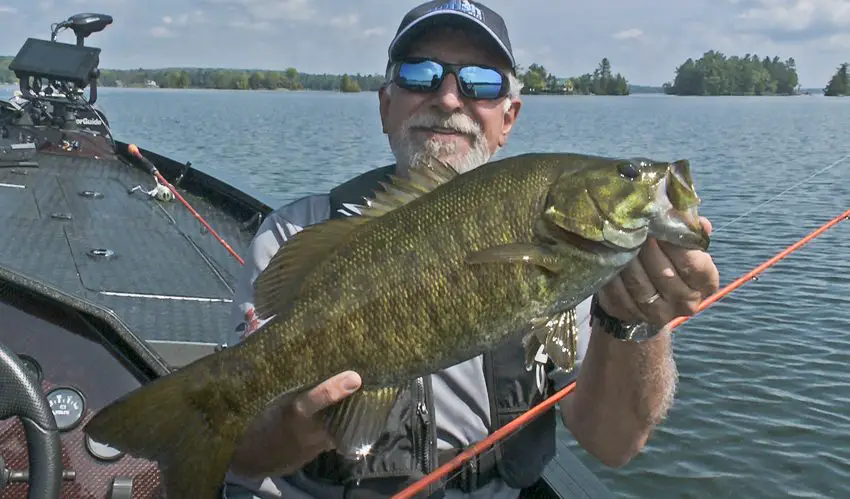
Perhaps the most obvious trait that makes bass more suitable for tournaments than their freshwater counterparts is their size. Unlike pike, walleye, and trout who reach sizes of 30 to 40 inches, a trophy-sized bass often measures around 18 to 20 inches. Not only does this trait allow 5 fish to swim freely and easily in the livewells of most boats, but also provides the best bang for your buck as the fight from a football-sized bass is one of the best in freshwater and comes in a much more condensed package.
Well Suited, But Not Perfect
Although bass are by far the best-suited species to support a tournament fishing industry, livewelling bass still has its fair share of consequences.
The effects of tournaments on bass has been studied rather extensively since the mid-’90s when the industry’s popularity was rapidly growing. While post-catch mortality rates were the primary focus early in the research, it became clear rather quickly that the behaviour and survivability of the fish released after weigh-in was an equally important subject in determining the impact of tournaments on bass fisheries.
Thankfully, the majority of studies focused on this issue determined that roughly 97% of Largemouth and 91% of Smallmouth survive their tournament experience, taking into account post-catch, weigh-in, and post-release mortality. That being said, however, fish behaviour once they were returned back to the water, showed much less promising results.
As anyone with tournament experience will tell you, released bass are slow and stagnant, often remaining in a zombie-like state in the areas they are released for long periods of time before going back about their business. More than simple shock or exhaustion, this lethargic behaviour is a result of severe lactic acid build-ups in the muscles of the fish. While this is not necessarily a deadly condition, this build-up does inhibit the fish’s ability to swim in fast bursts for up to 24 hours, likely rendering it unable to effectively feed or escape predators for that period of time.
Although this unfortunate state of post-release bass is common, it is, thankfully, not inevitable.
Most studies concerning the issue link this build-up of lactic acid directly to air exposure, meaning that bass can likely be protected from this state as long as they are kept in water as long as possible. This is already being achieved in many tournaments through the use of holding tanks and the elimination of dry weigh-ins. Tournament organizations such as the MLF are also paving the way by eliminating livewells and weigh-ins altogether, putting scales on the boats to allow for the fish to be released just seconds after they are caught.
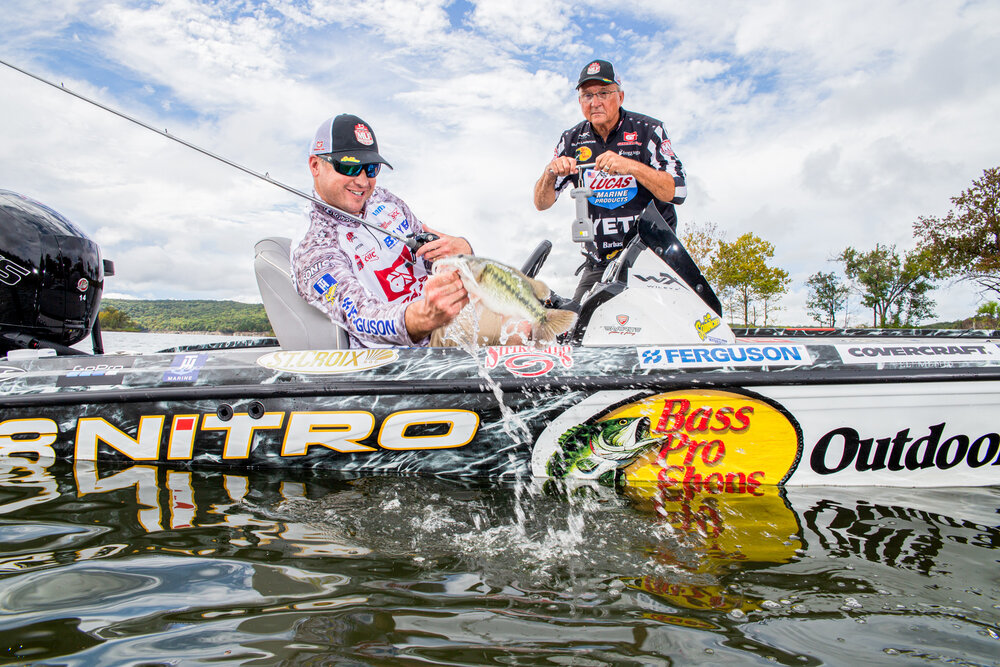
References
Allen, M. S., Rogers, M. W., Myers, R. A., & Bivin, W. M. (2004). Simulated impacts of tournament-associated mortality on largemouth bass fisheries. North American Journal of Fisheries Management, 24(4), 1252-1261.
Hartley, R. A., & Moring, J. R. (1995). Differences in mortality between largemouth and smallmouth bass caught in tournaments. North American Journal of Fisheries Management, 15(3), 666-670.
Schramm Jr, H. L., Vondracek, B., French, W. E., & Gerard, P. D. (2010). Factors associated with mortality of walleyes and saugers caught in live-release tournaments. North American Journal of Fisheries Management, 30(1), 238-253.
Suski, C. D., Cooke, S. J., Killen, S. S., WAHL PHILIPP, D. D., & Tufts, B. L. (2005). Behaviour of walleye, Sander vitreus, and largemouth bass, Micropterus salmoides, exposed to different wave intensities and boat operating conditions during livewell confinement. Fisheries Management and Ecology, 12(1), 19-26.The opercular rate of largemouth bass did not vary significantly throughout the experiment from initial values
Suski, C. D., Killen, S. S., Morrissey, M. B., Lund, S. G., & Tufts, B. L. (2003). Physiological changes in largemouth bass caused by live-release angling tournaments in southeastern Ontario. North American Journal of Fisheries Management, 23(3), 760-769.





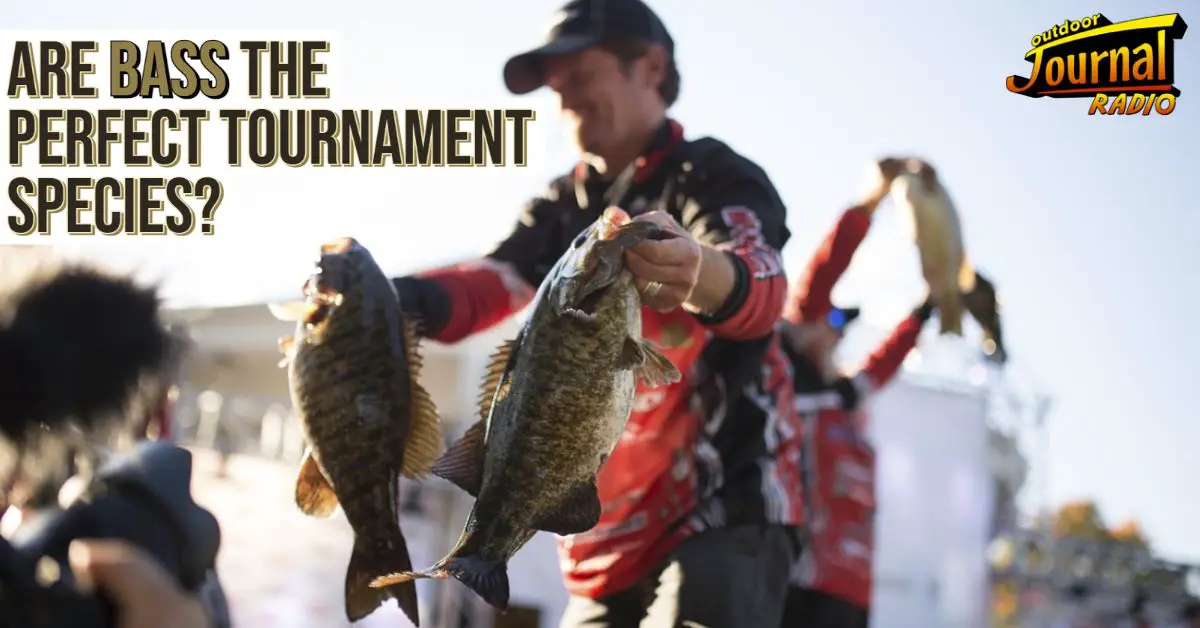
One Response
My old friend “Bass Catcher Bob” told me that in 1967, Ray Scott of Montgomery, Alabama launched the concept of competitive bass fishing by forming the Bass Anglers Sportsman Society. In late 2010, Alabama businessmen Don Logan and Jim Copeland plus veteran broadcaster Jerry McKinnis formed an ownership group to purchase the organization from ESPN. In 2011, the new owners relocated B.A.S.S. headquarters from Celebration, Florida, to Birmingham, Alabama. In 2017 Anderson Media Corp., a 100-year-old family business founded in Ala., acquired a majority interest in B.A.S.S. It has a membership of more than a half a million members.
https://fishncanada.com/are-bass-the-perfect-tournament…/
The B.A.S.S. organization advances the sport through advocacy, outreach and an expansive tournament structure while connecting directly with the passionate community of bass anglers through its media vehicles. B.A.S.S. is a tournament and membership organization serving more than 515,000 members and their families.
Most B.A.S.S. tournaments won:
26, Kevin VanDam
19, Roland Martin
17, Denny Brauer
15, Rick Clunn
13, Larry Nixon
Angler of the Year Award:
The Angler of the Year (AOY) award is given to the angler who, at the end of the season, has accumulated the most points throughout the year’s “Elite Series” tournaments. Winners of the award:[5]
1970 — Bill Dance
1971 — Mark Hunter
1972 — Roland Martin
1973 — Roland Martin
1974 — Bill Dance
1975 — Roland Martin
1976 — Jimmy Houston
1977 — Bill Dance
1978 — Roland Martin
1979 — Roland Martin
1980 — Larry Nixon
1981 — Roland Martin
1982 — Larry Nixon
1983 — Hank Parker
1984 — Roland Martin
1985 — Roland Martin
1986 — Jimmy Houston
1987 — Denny Brauer
1988 — Rick Clunn
1989 — Gary Klein
1990 — Guido Hibdon
1991 — Guido Hibdon
1992 — Kevin VanDam
1993 — Gary Klein
1994 — David Fritts
1995 — Mark Davis
1996 — Kevin VanDam
1997 — Davy Hite
1998 — Mark Davis
1999 — Kevin VanDam
2000 — Tim Horton
2001 — Mark Davis
2002 — Davy Hite
2003 — Jay Yelas
2004 — Gerald Swindle
2005 — Aaron Martens
2006 — Michael Iaconelli
2007 — Skeet Reese
2008 — Kevin VanDam
2009 — Kevin VanDam
2010 — Kevin VanDam
2011 — Kevin VanDam
2012 — Brent Chapman
2013 — Aaron Martens
2014 — Greg Hackney
2015 — Aaron Martens
2016 — Gerald Swindle
2017 — Brandon Palaniuk
2018 — Justin Lucas
2019 — Scott Canterbury
2020 — Clark Wendlandt
2021 — Seth Feider
There you have it folks. Bass are certainly the perfect tournament species.